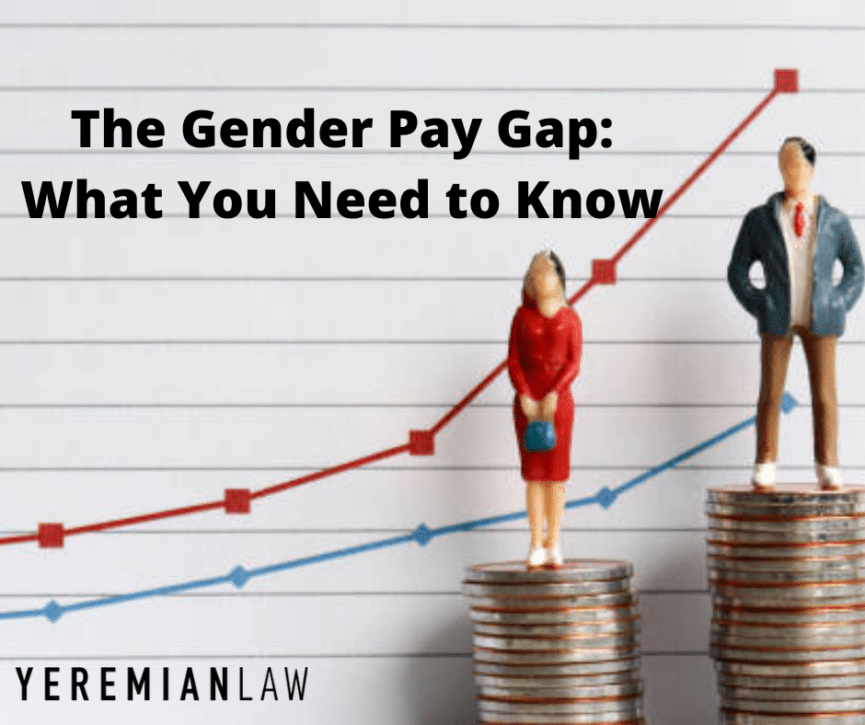What is the gender pay gap, and does it affect you? If it does affect you, is there anything you can do about it? This guide explains.
What is the Gender Pay Gap?
The gender pay gap is the average difference between pay for men and women in the workforce. Women generally make less money than men do, and the results of multiple studies over the past several decades have been consistent. On average, women make about $0.82 for every $1 men make, and the gap is wider between women of color and men. This table outlines the gender pay gap using averages from 2018 Census Bureau data.
| Men | $1 |
| Black women | $0.62 |
| Hispanic or Latino | $0.54 |
| Asian | $0.90 |
| White | $0.79 |
| American Indian or Alaska Native | $0.57 |
Several factors affect the gender wage gap – this gap doesn’t reflect the differences in pay between men and women performing the same services. Instead, it looks at all men and women in the workforce. Some of the factors that influence the gender wage gap include:
- Differences in industries or jobs worked. There’s quite a bit of occupational segregation in the U.S. because men and women often get funneled into different jobs (and even different industries) because of gender expectations. For example, it’s not exceedingly common to see men working in school settings; it’s not very common to see women in the construction industry, either.
- Differences in experience. It’s not that women lack experience for want of it – it’s that women are disproportionately driven from the workforce to perform caregiver roles and fulfill other unpaid obligations, which leads to a gap in experience. A woman who leaves the workforce at the age of 25 to have children and comes back at age 40 has missed 15 years of experience that her male counterparts have.
- Differences in hours worked. Women are more likely to work part-time, or to work shorter hours than their male counterparts are because they have to accommodate caregiving and other unpaid obligations.
- Although gender-based pay has been unlawful since 1963, it’s still a very widespread problem.
What if Your Employer Pays You Less Than Your Male Counterparts?
First things first: Your employer must pay you the same wage it would pay a man with the same or similar experience to perform the same work. Thanks to the Equal Pay Act and Title VII of the Civil Rights Act of 1964, employers cannot deny women:
- Equal pay for equal work
- Transfers
- Promotions
- Wage increases
Employers cannot manipulate job evaluations to relegate women’s pay, and they cannot intentionally segregate men and women by placing them in jobs according to their gender. (Naturally, there are circumstances where it’s okay to only hire a woman or only hire a man; this isn’t the same thing as having a genuine need to hire a person of a specific gender. For example, a women’s fitness center may market itself as “for women, by women” and, in order to create a safe space for women to work out, may hire only female trainers and other associates.)
What Can You Do if You’re Being Paid Unfairly?
Sometimes it’s appropriate for an employer to pay a woman less than it’s paying a man. For example, if you’re a brand-new hire, fresh out of college, you’re going to make less money than a man who is the CEO of the company. The key is that if you are performing the same job duties, you have similar experience, and working on the same projects, you should be paid equally.
If you’re facing a pay gap with your male colleagues, you may have legal recourse. You should consult with an attorney about your situation, and let your lawyer know everything you’ve learned about what others are making. It can be very difficult to prove that you’re being discriminated against when it comes to pay, so working with a lawyer may be your best option.
Do You Need to Talk to an Employment Lawyer About the Gender Pay Gap?
We’ll be happy to provide you with a free consultation if you’re being paid less than your male counterparts are. Call our office to schedule a time to talk now – we’re at 818-230-8380. You can also contact us by filling out the form below.




